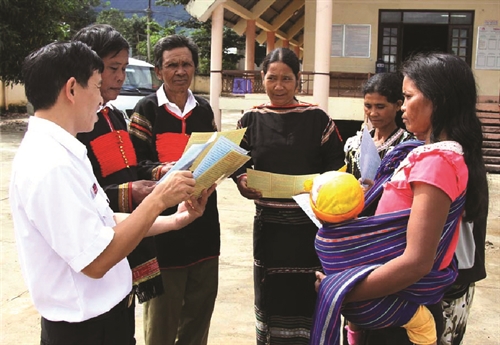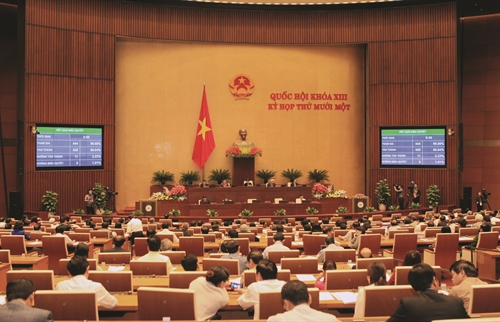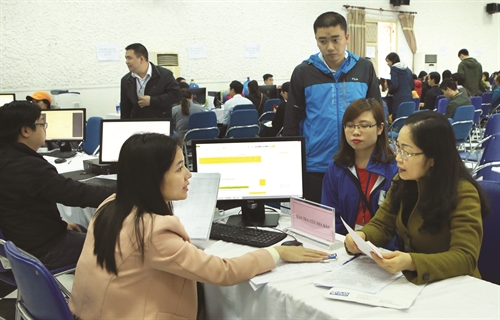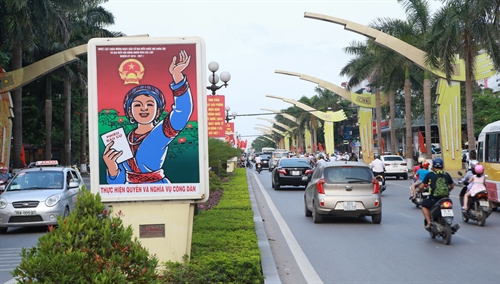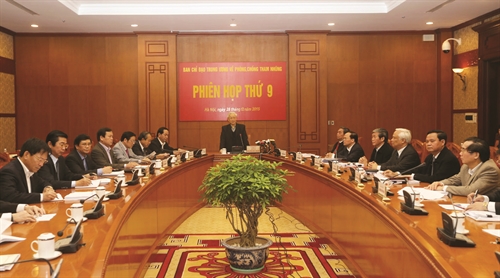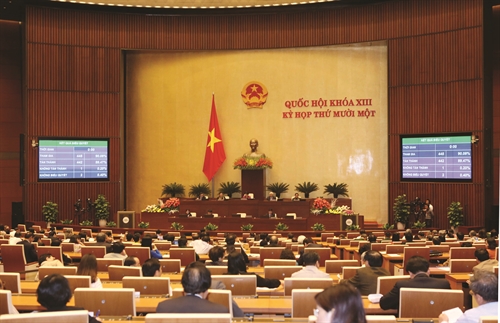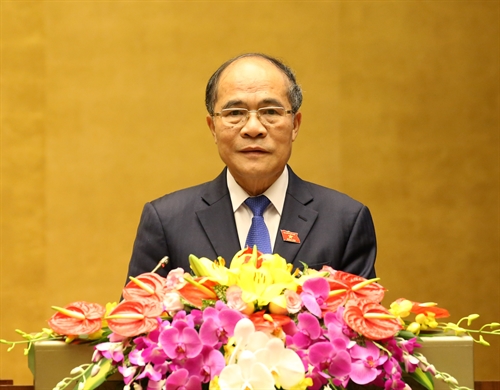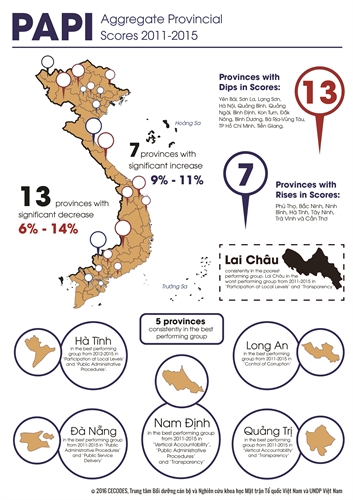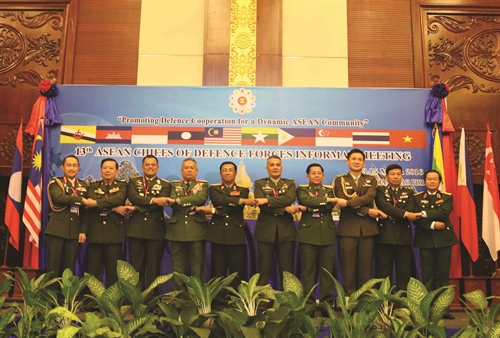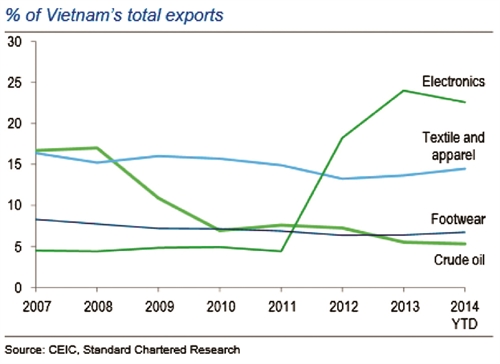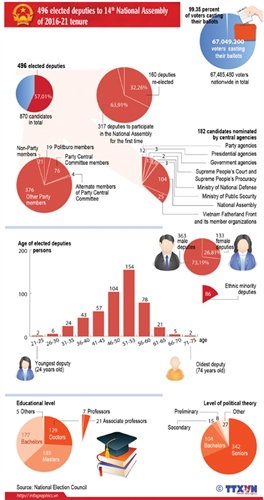 |
Four hundred and ninety six out of 870 candidates have been elected to the country’s new legislative body, Nguyen Hanh Phuc, Secretary General of the National Assembly, said at a press conference held on June 9 by the National Election Council to announce the results of election of deputies to the 14th National Assembly and deputies to all-level People’s Councils for the 2016-21 tenure.
Out of 496 elected deputies, 317 are those to participate in the National Assembly for the first time. Among 197 candidates nominated by central agencies 182 were elected. Only two self-nominated candidates won the election, while this number was four in the 13th Legislature.
Soc Trang, Son La, Lam Dong and Dong Nai provinces each lack one deputy compared to the number of allocated deputies.
Prime Minister Nguyen Xuan Phuc won the highest rate of votes, at 99.48 percent, followed by Minister of National Defense Ngo Xuan Lich with 95.87 percent of votes. The rates of votes for Party General Secretary Nguyen Phu Trong, President Tran Dai Quang and National Assembly Chairwoman Nguyen Thi Kim Ngan were 86.47 percent, 75.08 percent, and 91.46 percent, respectively.
All 19 members of the Political Bureau and 17 cabinet members have won the election. Secretary of Hanoi Municipal Party Committee Hoang Trung Hai was elected with 87.15 percent of votes for, and Secretary of Ho Chi Minh City Party Committee Dinh La Thang won the election with 85.02 percent of votes.
All 52 candidates introduced by Party agencies, Presidential agencies, Government agencies, Supreme People’s Court, Supreme People’s Procuracy, Ministry of National Defense and Ministry of Public Security have won the election. The National Assembly has 104 out of 113 candidates winning the election, while the Vietnam Fatherland Front and its member organizations have 25 out of 31 candidates elected.
Regarding the structure of National Assembly deputies, the elected deputies include 21 non-Party members (4.2 percent), 86 ethnic minority persons (17.3 percent), 133 women (26.8 percent), 71 persons under 40 years of age (14.3 percent), 310 postgraduates (62.5 percent), 180 holders of university degree (36.3 percent), and 160 deputies re-elected (32.3 percent).
Especially, the new Legislature sees a record on the rate of deputies being Party members with 95.8 percent and the number of Party Central Committee members winning the election with nearly 100 deputies (including full 19 members of the Political Bureau).
However, the number of ethnic minority deputies lacks four, while that of female deputies lacks 17, against the expected figures. The rate of deputies being non-Party members drops by 4.2 percent as compared to that of the previous legislature. The number of young deputies is 21 persons higher than the expected figure.
Regarding the results of election of deputies to People’s Councils at all levels, reports of 63 provinces and cities nationwide show that 3,908 candidates have been elected for provincial-level People’s Councils. For district- and commune-level People’s Councils, these figures are 25,179 and 291,273 deputies, respectively. However, there remains a shortage of elected deputies for all three levels. Specifically, provincial-level People’s Councils lack eight deputies, district-level People’s Councils, 120, and commune-level People’s Councils, 6,626.
At its 49th session held on June 13-15 in Hanoi, the National Assembly Standing Committee gave comments on preparations for the first session of the new legislative body.
The 14th National Assembly will, at its first session slated to take place from July 20-30, decide on the organization and high-ranking personnel of the state apparatus, including election of the Chairperson and Vice Chairpersons of the National Assembly and members of the National Assembly Standing Committee; Chairperson of the Ethnic Council and chairpersons of Committees of the National Assembly; Secretary General of the National Assembly; President, Vice President, Prime Minister, Chief Justice of the Supreme People’s Court, Procurator General of the Supreme People’s Procuracy, and State Auditor General.
The Legislature is also expected to decide on the organizational structure and membership of the Government; approve the appointment of Deputy Prime Ministers, ministers and other members of the Government; and approve the list of members of the Defense and Security Council.
National Assembly deputies will consider and approve the National Assembly’s Resolution on the law- and ordinance-making program and program on the National Assembly’s oversight activities for 2017 and the establishment of a specialized oversight team.
They will debate the Government’s report on implementation of the socio-economic development plan and state budget during the first half of 2016 as well as solutions for implementing the plan of this kind for the second half of the year.
Other reports relating to thrift practice and waste combat; management and use of state property; marine environment; use of loans; and management of public debts will be delivered to National Assembly deputies for comment.-
